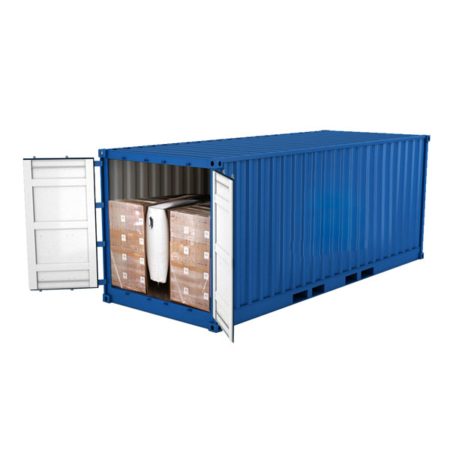
PP airbags
Load securing is a critical aspect of transporting goods, as it helps to prevent damage and accidents during transit. One of the most effective tools used in load securing are load stabilizing dunnage bags.
Dunnage bags are inflatable cushions that can be easily inserted between the cargo and the walls of the container, trailer or truck bed. This helps to prevent movement and shifting of the load during transit, ensuring the safety of both the cargo and the people involved.
The use of dunnage bags also helps to increase the stability of the load, which can reduce the likelihood of damage or loss due to shifting. This is especially important for fragile items such as glass or delicate machinery, which can be easily damaged if not properly secured.
In addition to their functional benefits, dunnage bags are also cost-effective and environmentally friendly. They can be reused multiple times, reducing the need for frequent replacement, and they are made of recyclable materials.
In conclusion, using dunnage bags as part of a comprehensive load securing system is an effective and efficient way to ensure the safe transportation of goods. They provide stability, protect against damage, and are cost-effective and environmentally friendly, making them a popular choice for all industries.
Dunnage bags serve to block or prevent acceleration that occurs during transportation, leading to the movement of cargo in the form of sliding or tipping.
A dunnage bag should never be higher than the cargo to be secured. Sharp edges should be eliminated or covered with a cardboard layer.
The weight a dunnage bag can hold depends on the size of the bag, the contact area between the cushion and the cargo, and the gap the bag fills.
The working pressure indicates the necessary pressure for filling. If the pressure is too low, there is a risk that the dunnage bag will loosen if the ambient pressure increases or the air temperature decreases. On the other hand, if the filling pressure is too high, there is a risk that the dunnage bag will burst or the cargo will be damaged if the ambient pressure decreases or the air temperature increases.
The burst pressure indicates at what pressure a dunnage bag is in danger of bursting.
Standard widths: 60, 90, 120, 150
Standard heights: 60, 90, 120, 150, 180, 210, 240
A pneumatic compressor and an inflatior are needed to fill. The most common are the metal inflator with locking adapter, which is very robust and recommended for frequent users. Alternatively, a simple plastic version is suitable for a few applications. If no pneumatic compressor is available, the Bosch battery blower is suitable, which guarantees flexible handling and saves the cost of purchasing a compressor. With one battery load, about 80-100 dunnage bags (depending on size) can be filled.
The most common sizes are available from stock. If not, the delivery time is approximately 4 weeks.
With the valves, we differentiate between Front (on the wide side at the top left in the corner) and Edge (on the narrow side, for extremely narrow gaps).
The following versions of PP – Dunnage bags can be produced:
• Inner layer: Polyethylene
• Outer layer: Polypropylene
• Valve: HDPE
• Pallet: 120 x 100 x 115 cm (stackable)
• Classification: Level 1-L, Level 1, Level 2, Level 3, Level 4, Level 5, 3D
• Properties: resistant to chemical influences and seawater, reusable, fully recyclable
- Display -1 Products per page

 Stuut Lifting & Lashing
Stuut Lifting & Lashing
